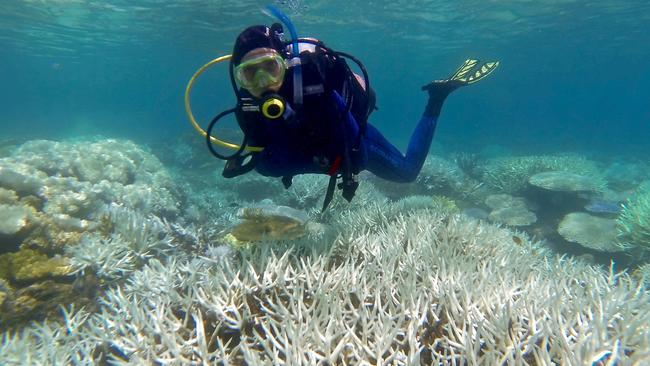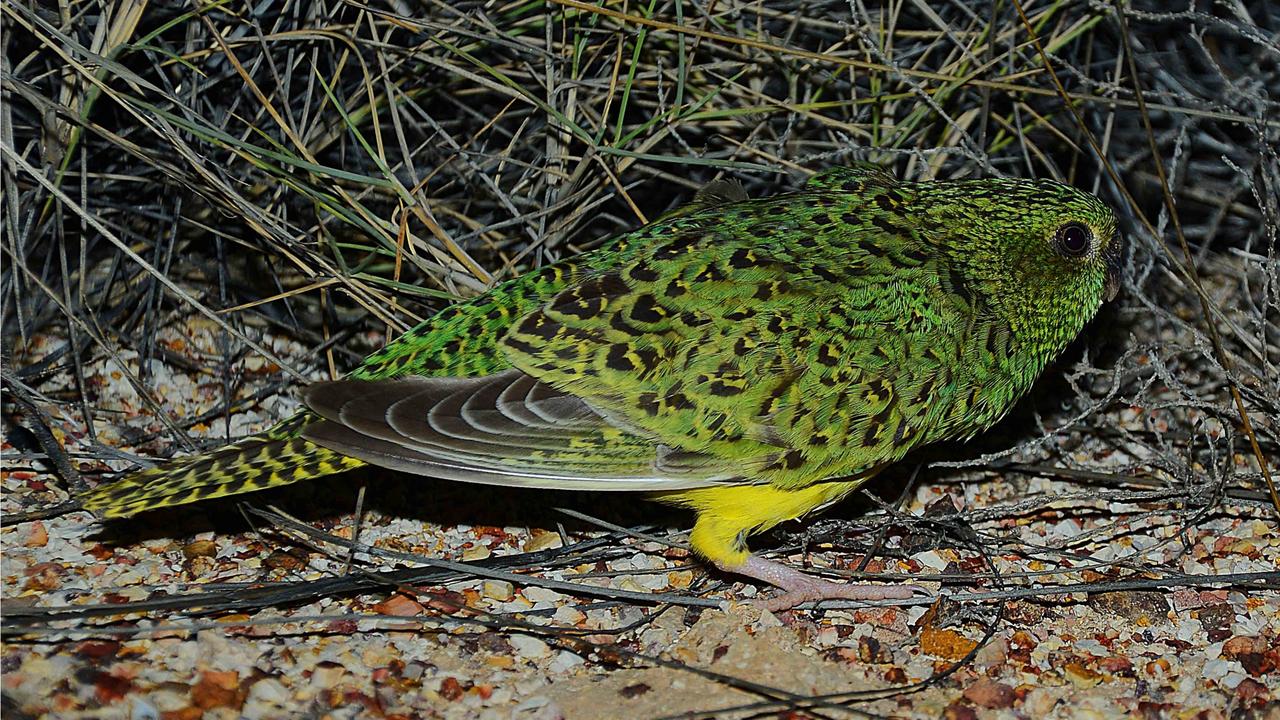Not all scientists agree on cause of Great Barrier Reef damage
Marine heatwave so degraded the Reef’s ecology it may never fully recover but not all scientists agree on cause of the damage.

The ecology of a third of the Great Barrier Reef had been transformed by coral bleaching by 2016 and may never fully recover but not all scientists were prepared to say that climate change was definitely to blame.
A major paper in Nature led by reef specialist Terry Hughes said coral die-off from the marine heatwave had led to radical changes. Mature and diverse coral assemblages had been transformed into more degraded systems.
Researchers mapped the geographical pattern of heat exposure and coral death along the 2300km length of the Great Barrier Reef. The amount of coral death they measured was closely linked to the amount of bleaching and level of heat exposure, with the northern third of the reef being the most severely affected.
The study found that 29 per cent of the 3863 reefs comprising the world’s largest reef system lost two-thirds or more of their corals, transforming the ability of these reefs to sustain full ecological functioning. Although many corals died immediately from the heat stress, others had died more slowly.
The Australian and US authors said a full recovery to the pre-bleaching assemblages was unlikely to occur, with the replacement of dead corals expected to take at least a decade, even for fast-growing species.
Professor Hughes said despite the bleaching, there were still a billion or so corals alive, and on average they were tougher than the ones that died.
Many scientists have said the results were a wake-up call on climate change.
“The Great Barrier Reef is certainly threatened by climate change, but it is not doomed if we deal very quickly with greenhouse gas emissions,” Professor Hughes said.
“Our study shows that coral reefs are already shifting radically in response to unprecedented heatwaves.”
In a statement issued by the Australian Science Media Centre, Sarah Perkins-Kirkpatrick from the University of NSW said the results of the study “confirm our worst fears of the detrimental impact man-made climate change is having on the Great Barrier Reef, and our natural ecosystems as a whole”.
Emeritus professor Ian Lowe from Griffith University said the findings were “yet another concrete example of the costs of climate change”.
But Jochen Kaempf, an oceanographer in the College of Science and Engineering at Flinders University, said “the claimed link between the 2016 heatwave and global warming has no scientific basis”.
In his Science Media statement, Associate Professor Kaempf said heatwaves were transient features that were linked to anomalous weather events or, if prolonged, to climate variability, such as the El Nino Southern Oscillation.
“As such, an individual heatwave triggering coral bleaching cannot be linked to global warming as the process triggering an individual heatwave is fundamentally different from that triggering global warming,” he said.
“The claim that the GBR will not recover in the future cannot be tested yet,” he said.



